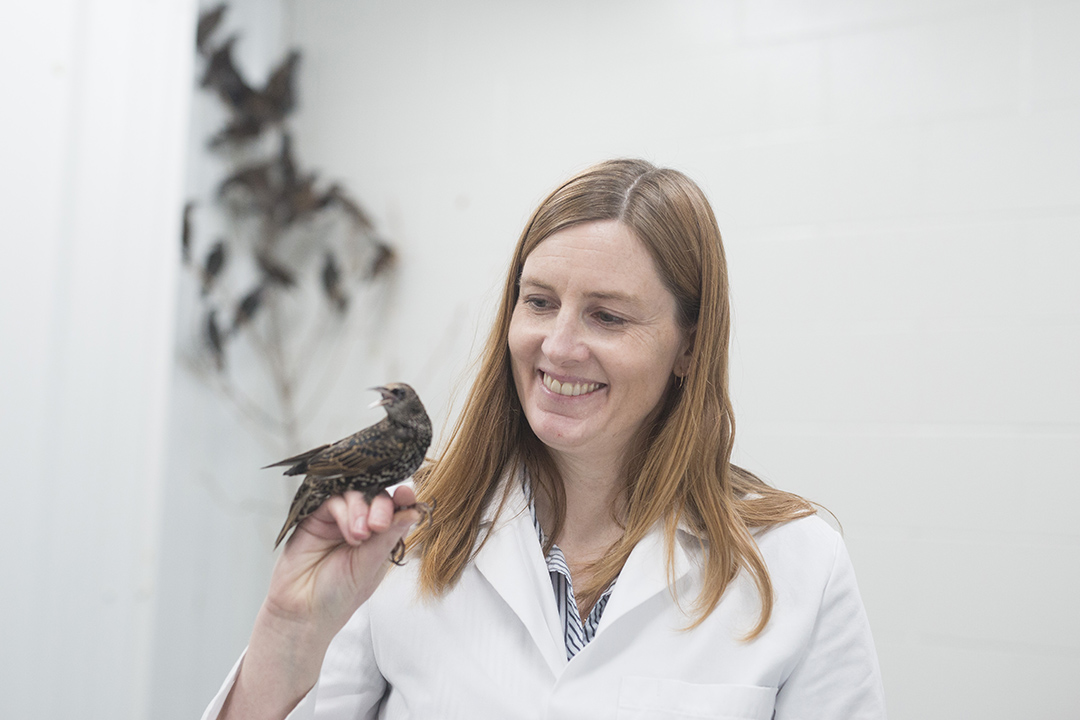
Christy Morrissey: Community impact
Promoting ecological sustainability, protecting the environment and being an essential community partner are some of the basic tenets of the University of Saskatchewan’s (USask) seven-year plan to be The University The World Needs.
By James ShewagaThey are also at the heart of the work Dr. Christy Morrissey (PhD) does every day—in the classroom, in the lab and in the field—as she studies the damaging effects of pesticides and industrial pollutants on migratory birds.
“These are really important issues that occur right here in this province, so I think the university is well-positioned to study these problems that are happening in our backyard,” said Morrissey, a professor of biology in the College of Arts and Science and the School of Environment and Sustainability at USask.
Morrissey, who joined USask in the fall of 2010, is an ecotoxicologist and one of North America’s leading experts on the threat to wild birds, particularly the effects of controversial neonicotinoid insecticides. Centred in the heartland of the agriculture industry, Morrissey has found many producers in the province are indeed interested and support her research endeavours.
“Environmental contaminants are a big issue everywhere,” she said. “When we study pesticides, for example, that takes us to agricultural fields across the Prairies,” she said. “We are working on farms and study the problem right there in the fields.
“Farmers are real stewards of the land and they don’t want to be harming the environment that they live on. The soils are important to them, the birds that they see are also important to many of them, and they are signalling that there is a problem.”
Sharing her research group’s findings with farm producers and the wider community is one of Morrissey’s priorities, and a key component of being an essential community partner.
“Farmers are concerned and they are interested in the information that we collect and we try to share it as much as possible,” said Morrissey, who has worked with provincial and national bodies on pesticide regulation issues, and shared her team’s research findings with the public in local, national and international media interviews as well as in speaking engagements like the recent TEDxUSask event.
“I think it is really important that we get that knowledge out to the farmers, rather than just speaking to academics and governments. We need to let the farmers know what’s going on, on their fields. Agriculture is one of the biggest industries for Saskatchewan and for the Prairies as a whole and we are the largest agrichemical users in Canada. So we have a real duty, I think, to understand what these chemicals do.”
The University the World Needs
The University the World Needs

